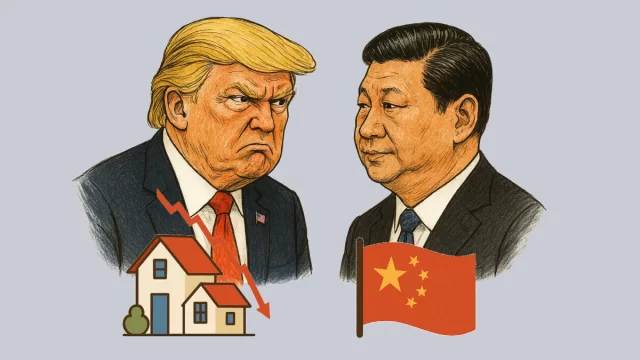
The White House is weighing big cuts to Trump‑era tariffs on Chinese goods — potentially halving them to ease trade tensions.
Options include trimming most duties to 50% to 65% or adopting a tiered system: a 35% rate for non‑security‑sensitive imports and 100% or more for strategic items. No decisions have been made yet, multiple outlets have reported.
On Tuesday, President Trump commented that 145% tariffs on China are “very high,” adding that they “will come down substantially,” according to reporting from The Wall Street Journal.
Trump and China are locked in an intense trade clash. The “Liberation Day” announcement in early April piled an extra 34 percentage points onto the 20% tariffs the Trump administration had imposed at the start of his term.
China hit back with its own 34% duty on U.S. goods, and on April 8, both sides upped the ante, slapping 50% tariffs on each other.
On April 9, Trump drew back on his original tariff plans, which included a baseline tariff of 10% on all imports, a 25% tariff on all foreign-made automobile imports and individual levies on countries. The president posted on social media that he was placing a 90-day pause on tariffs against 56 countries and the European Union.
The tariff decisions have already resulted in upheaval for mortgage lender stocks. Of the nine publicly traded mortgage lenders analyzed by HousingWire, each have seen their stocks fall since April 2.
Rocket Mortgage, whose stock had been bolstered by its recent acquisitions of Redfin and Mr. Cooper — reaching a gain of 31.2% at one point — sank by 2.3% following the tariff announcement.
Homebuilders have borne the brunt of the damage to stocks. The 25 % tariffs on steel and aluminum, along with the 145 % levy on Chinese imports, are directly squeezing construction costs. As of April 14, every one of the nine publicly traded builder stocks had fallen more than 13 % since Jan. 20.
First Time Home Buyer FAQs - Via HousingWire.com






